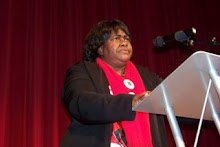If Obama Loses
By Jacob WeisbergPosted Saturday, Aug. 23, 2008, at 12:02 AM ET
What with the Bush legacy of reckless war and economic mismanagement, 2008 is a year that favors the generic Democratic candidate over the generic Republican one. Yet Barack Obama, with every natural and structural advantage in the presidential race, is running only neck-and-neck against John McCain, a sub-par Republican nominee with a list of liabilities longer than a Joe Biden monologue. Obama has built a crack political operation, raised record sums, and inspired millions with his eloquence and vision. McCain has struggled with a fractious campaign team, lacks clarity and discipline, and remains a stranger to charisma. Yet at the moment, the two of them appear to be tied. What gives?
If it makes you feel better, you can rationalize Obama's missing 10-point lead on the basis of Clintonite sulkiness, his slowness in responding to attacks, or the concern that Obama may be too handsome, brilliant, and cool to be elected. But let's be honest: If you break the numbers down, the reason Obama isn't ahead right now is that he trails badly among one group, older white voters. He does so for a simple reason: the color of his skin.
Much evidence points to racial prejudice as a factor that could be large enough to cost Obama the election. That warning is written all over last month's CBS/New York Times poll, which is worth examining in detail if you want a quick grasp of white America's curious sense of racial grievance. In the poll, 26 percent of whites say they have been victims of discrimination. Twenty-seven percent say too much has been made of the problems facing black people. Twenty-four percent say the country isn't ready to elect a black president. Five percent of white voters acknowledge that they, personally, would not vote for a black candidate.
Five percent surely understates the reality. In the Pennsylvania primary, one in six white voters told exit pollsters race was a factor in his or her decision. Seventy-five percent of those people voted for Clinton. You can do the math: 12 percent of the Pennsylvania primary electorate acknowledged that it didn't vote for Barack Obama in part because he is African-American. And that's what Democrats in a Northeastern(ish) state admit openly. The responses in Ohio and even New Jersey were dispiritingly similar.
Such prejudice usually comes coded in distortions about Obama and his background. To the willfully ignorant, he is a secret Muslim married to a black-power radical. Or—thank you, Geraldine Ferraro—he only got where he is because of the special treatment accorded those lucky enough to be born with African blood. Some Jews assume Obama is insufficiently supportive of Israel in the way they assume other black politicians to be. To some white voters (14 percent in the CBS/New York Times poll), Obama is someone who, as president, would favor blacks over whites. Or he is an "elitist" who cannot understand ordinary (read: white) people because he isn't one of them. Or he is charged with playing the race card, or of accusing his opponents of racism, when he has strenuously avoided doing anything of the sort. We're just not comfortable with, you know, a Hawaiian.
Then there's the overt stuff. In May, Pat Buchanan, who writes books about the European-Americans losing control of their country, ranted on MSNBC in defense of white West Virginians voting on the basis of racial solidarity. The No. 1 best-seller in America, Obama Nation by Jerome R. Corsi, Ph.D., leeringly notes that Obama's white mother always preferred that her "mate" be "a man of color." John McCain has yet to get around to denouncing this vile book.
Many have discoursed on what an Obama victory could mean for America. We would finally be able to see our legacy of slavery, segregation, and racism in the rearview mirror. Our kids would grow up thinking of prejudice as a nonfactor in their lives. The rest of the world would embrace a less fearful and more open post-post-9/11 America. But does it not follow that an Obama defeat would signify the opposite? If Obama loses, our children will grow up thinking of equal opportunity as a myth. His defeat would say that when handed a perfect opportunity to put the worst part of our history behind us, we chose not to. In this event, the world's judgment will be severe and inescapable: The United States had its day but, in the end, couldn't put its own self-interest ahead of its crazy irrationality over race.
Choosing John McCain, in particular, would herald the construction of a bridge to the 20th century—and not necessarily the last part of it, either. McCain represents a Cold War style of nationalism that doesn't get the shift from geopolitics to geoeconomics, the centrality of soft power in a multipolar world, or the transformative nature of digital technology. This is a matter of attitude as much as age. A lot of 71-year-olds are still learning and evolving. But in 2008, being flummoxed by that newfangled doodad, the personal computer, seems like a deal-breaker. At this hinge moment in human history, McCain's approach to our gravest problems is hawkish denial. I like and respect the man, but the maverick has become an ostrich: He wants to deal with the global energy crisis by drilling and our debt crisis by cutting taxes, and he responds to security challenges from Georgia to Iran with Bush-like belligerence and pique.
You may or may not agree with Obama's policy prescriptions, but they are, by and large, serious attempts to deal with the biggest issues we face: a failing health care system, oil dependency, income stagnation, and climate change. To the rest of the world, a rejection of the promise he represents wouldn't just be an odd choice by the United States. It would be taken for what it would be: sign and symptom of a nation's historical decline.
Jacob Weisberg is editor-in-chief of the Slate Group and author of The Bush Tragedy.
Saturday, August 23, 2008
Subscribe to:
Post Comments (Atom)













No comments:
Post a Comment